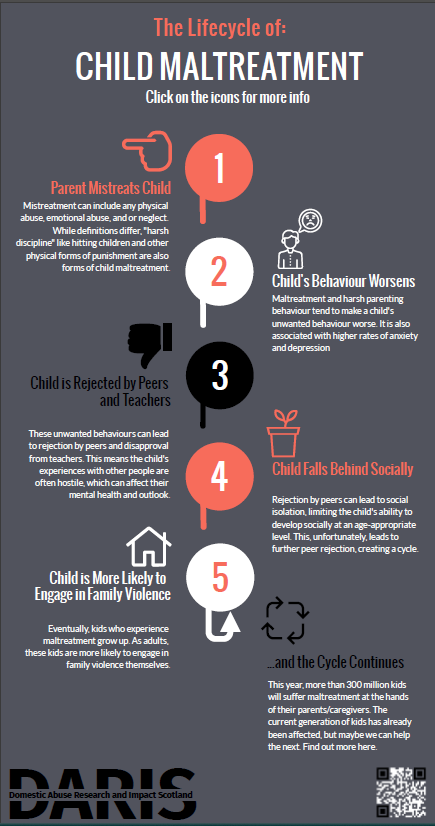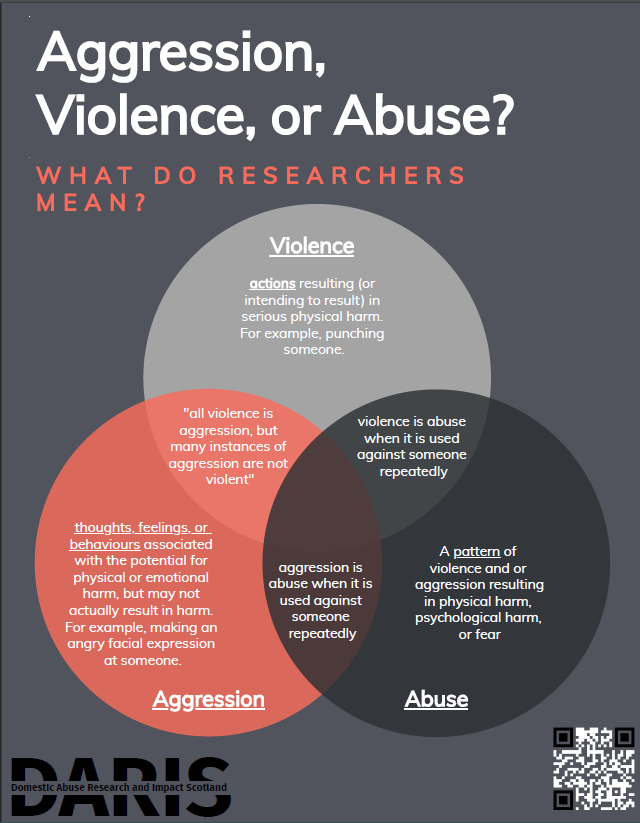Using research to reduce misinformation and support survivors: Domestic Violence Scotland
Trigger warning: This article contains mentions of domestic abuse.
From 2021-22, Police Scotland recorded 64,807 cases of domestic abuse. According to the Scottish Crime and Justice Survey, most incidents of domestic abuse go unreported and 16% of those that are reported, only mention the most recent incident. Most participants of the survey claim to have not reported incidents of abuse because they believed it was a “personal matter” or that they could “handle it on their own”. Domestic abuse can take many forms whether it be emotional, physical, financial, sexual, or digital abuse. People need accessible and understandable information on what domestic abuse is and how experiencing it can impact one’s well-being, physical health, financial well-being, and their families.
Annah McCurry, a PhD researcher in the School of Psychology and Neuroscience, studies intimate partner violence with a focus on emotional perception during conflict, under the supervision of Professor David Donaldson and Dr Bobby May. She recently completed the fourth of study of five for her project on the effect of emotional arousal on violence. Passionate to eradicate misinformation and enhance an awareness of domestic abuse, she has been in contact with the Dundee Coalition of Violence against Women Workers and Fife Women’s Aid, and had the opportunity to speak to them about trends, ideas, and current pressing issues in the study of violence against women. Consolidating these discussions, McCurry and the research group have co-created developed a website: “Domestic Violence Research and Impact in Scotland” (DARIS for short). This resource presents current research in the field in an accessible lay language format.
The website has been developed by McCurry to contain community-based violence resources to enhance the quality of information and the way it’s displayed. It covers topics ranging from child maltreatment, protective factors, the difference between proactive and reactive aggression, and the different dimensions of domestic abuse. The site also focusses on commonly misunderstood aspects of domestic abuse research and provides links to open-access sources, to empower those using the website to access as much information as they would like to. The website uses infographics to make complex statistical information more easily understood. McCurry has also added polls at the end of most pages, to gauge which issues people believe are most important when informing themselves about domestic abuse.

McCurry hopes that this website will aid anyone who wants more research-informed information about the topics of domestic abuse and its psychosocial implications. She is motivated to make these sensitive resources of information more accessible to the public, and to empower victims and those who are supporting them.

The DARIS research group is also currently working with a team in computer science to create an AI powered, self-updating database of Domestic Abuse resources in Scotland. The self-updating database will keep information about services up to date and make it easier for survivors to identify and access services in their area. Once active, the database will be hosted by the University on the DARIS website and free for any service to embed on their own websites, for the foreseeable future.